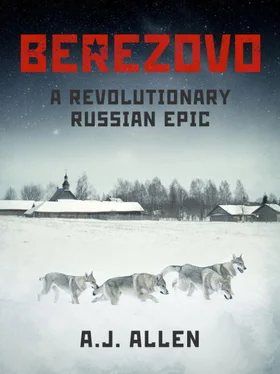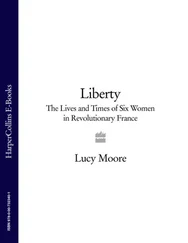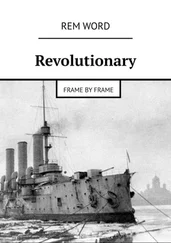The Mayor was on the point of passing the letter across to him when he remembered the colonel’s postscript. Irritably he snatched it up and laid it face down upon the desk and eyed the figure bending over him with suspicion.
“You mean you haven’t read it?”
“No, of course not, your Excellency!” his secretary replied. “It was marked ‘Personal’ and in the circumstances…”
Mayor Pobednyev dismissed this denial with a gesture of irritation, well aware that every piece of correspondence addressed to him, whether it was of a personal nature or not, had almost certainly been the subject of the closest scrutiny by his misshapen subordinate.
“Who brought it here and when did it arrive?”
“Colonel Izorov brought it here at about eight o’clock,” the man replied. “He left instructions that it was not to be opened by anyone except Your Excellency.”
“The colonel brought it here personally?” the Mayor repeated nervously.
“Yes, at eight o clock,” the secretary repeated. “Perhaps, Your Honour, the files of the allocation of the Cholera Relief Fund ought to be brought up to date? There may still be one or two irregularities…”
“Shut up!” Pobednyev snapped.
Picking up the note, the Mayor crumpled it in his fist and thrust it into the pocket of his morning coat. Then, pushing himself away from the desk, he stood up and walked over to the window that overlooked the length of Alexander III Boulevard. The distant prospect of the Church of the Nativity of the Blessed Virgin Mary was still shrouded in darkness and even the corner of Alexei Street and Hospital Street, where two evenings before Dr. Tortsov’s maidservant had narrowly escaped being trampled by the gendarme’s horse, was invisible in the gloom. The only moving creature he could see was a well wrapped figure sweeping the snow from the front steps of the Hotel New Century.
The Mayor stared uneasily at the hotel’s weather-beaten wooden portico. It awoke uncomfortable memories of an occasion seven years before, when it had been called the ‘Hotel de Paris’. Fyodor Gregorivich had just taken over the management following the death of his uncle and, characteristically, the new proprietor’s first action had been to throw open the dining room for a lavish banquet to celebrate his inheritance. It had been a glittering occasion, as far as any occasion in Berezovo could be described as ‘glittering’. The engraved invitations were coveted even among the barines and not just because the meal was free. To be able to display such an invitation in one’s home spoke volumes about the recipient’s standing in the town.
Many of the townsfolk who had not been invited to the banquet, and quite a few of those who had, predicted that the event would prove a costly mistake. The young owner was widely regarded, even by his own uncle, as a prodigal wastrel. The common wisdom in the town at that time had been that if Fyodor Gregorivich’s intention was to ingratiate himself with his new clientele (which, in truth, it was) then he had misjudged his fellow men. Once the evening was past, and the lucky few had rolled home to their beds, they would soon forget his generosity; whereas those who had been excluded from the dinner would for a long time bear a grudge against the new patron. Fortunately for Fyodor Gregorivich, these prophets of doom had underestimated the enduring power of their own envy and the dinner marked not the demise but the regeneration of the Hotel as a fashionable meeting place where even the most ordinary citizen could, for the price of a glass of tea or coffee, if not actually rub shoulders with his or her social superiors at least observe their public comings and goings.
It was not the memory of the banquet itself but of its aftermath that was now troubling the Mayor. Once the banquet proper had ended and the women packed off home in droshkis , Fyodor Gregorivich had been persuaded to remove his serviette from his arm and join his remaining guests at their tables. Many a toast had been drunk by the time poor Wrensky the revenue officer, who was later to die so mysteriously, had stood up and, swaying unsteadily, suggested that since the hotel had a new proprietor it was only fitting that it should receive a new name. They had pounded the tablecloths with their palms in agreement and a further succession of toasts had swiftly followed, each guest suggesting a suitable name. At the height of the contest, as each suggestion was becoming more absurd than the last – would anyone really want to stay at the Hotel Ukraine , for instance? Or at Obview ? – the Mayor had been seized suddenly with inspiration and, before he knew it, he was on his feet rapping his spoon on his table for silence.
“No, no, gentlemen!” he had declared, “There is only one name that is suitable.”
He had paused dramatically and lifted his glass.
“In the hope of better times, I give you the Hotel New Era!”
The Mayor’s toast had been greeted with acclaim. Everyone had seemed quite happy with the name and it was not until shortly afterwards, when he had risen from his chair and was making his way with some difficulty out of the dining room and along the corridor towards the downstairs lavatory, that the Mayor had become conscious of Colonel Izorov padding silently by his side. One glance at the angry expression on the policeman’s face had told him that something was wrong. Despite the amount of vodka, champagne and brandy he had already consumed, Pobednyev found himself rapidly growing sober.
“Well, Kostya,” he had greeted the Chief of Police amiably, “what a party, eh? By Christ, we shall suffer for this in the morning!”
“Not necessarily,” Izorov had replied ominously.
“I beg your pardon?”
“It all depends on whether or not you can persuade that drunken rabble in there to adopt another name for this pile of rubbish.”
“But Colonel,” he had foolishly protested, “what is wrong with the name Hotel New Era? It seems perfectly…”
It was unclear what had happened next. After all, there were no witnesses, no passers-by in the narrow ill lit corridor. Perhaps he had stumbled, as the policeman had told the others afterwards. All the Mayor could remember now was that suddenly the policeman was holding him up against the wall with his face only inches from his own.
“Listen, you drunken oaf!” Col. Izorov had snarled. “I don’t want any talk about a new era in this town. Not while I am Chief of Police. The next thing you know people will want to change the names of the streets and call them after Nechayev and scum like that. Do you understand me?”
For a moment, the Mayor had thought that the colonel had been joking and had begun to laugh, but the sound died in his throat under the chilling threat of the iron grey eyes.
“Certainly, Konstantin Illyich,” he had spluttered, “of course! You are quite right! I meant something quite different entirely. I meant the… Hotel New Century!”
A grim smile of satisfaction had spread slowly across the policeman’s face as he slowly relaxed his grip. Raising his hand, he patted the Mayor’s cheek playfully, making Pobednyev flinch.
“That’s right, Your Honour. The Hotel New Century.”
And so it had been called and the affair had gone no further, but ever since, the Mayor had been wary of doing anything that risked antagonising the colonel’s sensibilities; political or otherwise. It was well within the Chief of Police’s power to submit a report to District Headquarters identifying him as an ‘unreliable’ public official that might trigger a governor’s inspection. The trouble was, he thought as he peered down into the dark street below, one could never be sure where one stood with Izorov.
Читать дальше












